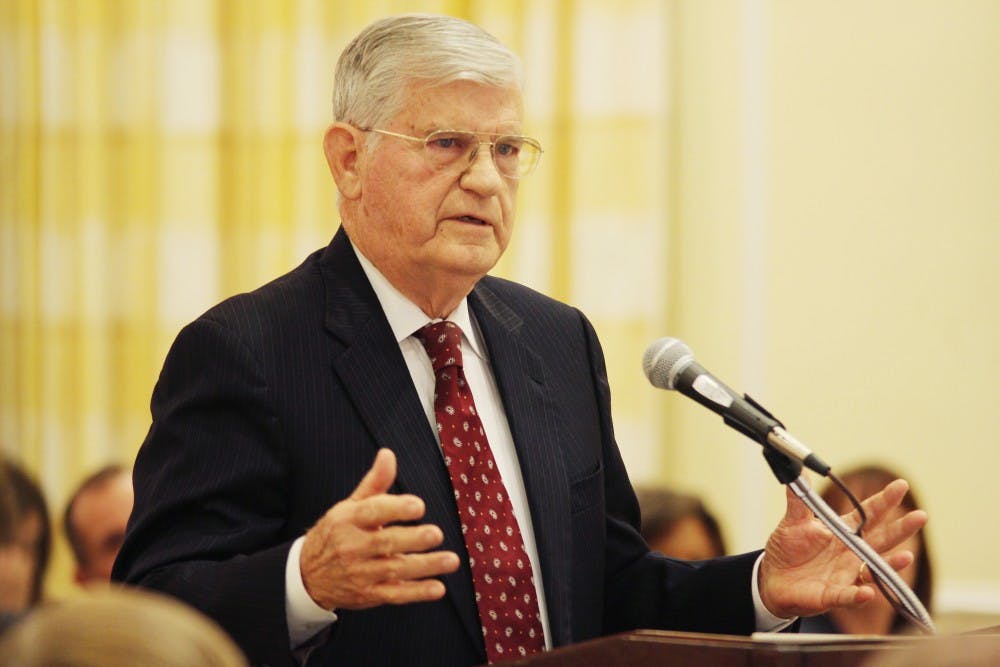In addition, Martin said no athletic counselors, student athletes, or coaches were involved with the abuse of classes or anomalous courses.
Enrollment in “term-paper” lecture courses in the department began to grow rapidly in 2003, but had basically disappeared by the summer of 2007, “for some unknown reason.” These courses almost ceased after summer of 2009, when Crowder retired.
Martin said that although no motive was found for the anomalous courses, he suggested that it was done to enlarge enrollment in the department to gain more faculty positions since it was so new. Martin said he could not get in contact with Nyang’oro or Crowder to discuss their motivations.
“We called to try to get in touch with him and did not get any response,” Martin said. “If you were (Nyang’oro’s) lawyer, you’d tell him don’t talk, and the same for Deborah Crowder.”
Rose Tagle said that interviewing these two people could have given them the answers they were looking for as to why there were changed grades, signatures were forged, and more.
“We would love to sit down with those two individuals,” said Rose Tagle.
Although the report does show that anomalies were first found in 1997, rather than previously thought in 2007, Thorp said the fact that the fraud is isolated was somewhat reassuring.
“There’s multiple emotions associated with this. Obviously there are things about the findings we’re very relieved to hear, that there are no other faculty members involved, no other departments,” he said.
In the report, six departments were found to have displayed curious features that were later cleared. Martin said these departments included exercise and sport science, dramatic art, romance languages, linguistics, communication studies and naval science.
In terms of student athlete representation in these classes, Martin said he did not find it out of line, especially in the department of African and Afro-American studies, considering their interest in these classes.
In his conclusion to the board, Martin expressed frustration with what he called an astonishing national trend of possible grade inflation and high grades. He said that during his time as a teacher, the average was a 2.5 GPA, and now it has risen to 3.3 GPA.
“It’s as if the instructors are unwilling or unable to distinguish between good performance and great performance, or maybe want to help weaker students get admitted to graduate and professional schools,” he said.
To get the day's news and headlines in your inbox each morning, sign up for our email newsletters.
In all, Martin said he, and members of his team, reviewed data back to 1994 that included 172,580 course sections.
They conducted 86 interviews with individuals including former student athletes, undergraduates, faculty, staff , top administrators, coaches, advisers, counselors and tutors. However, no current players or coaches were interviewed.
“We were asked to get to the bottom of this academic misconduct, and we have done everything in our power to do so,” Martin said.
Rose Tagle also spoke about the current checks and balances the University has put in place since the scandal, such as having more oversight.
“The key going forward is to not treat this as a one-time, we fixed it, let’s move on,” she said. “But this is an ongoing effort that requires vigilance at every level of the institution.”
Chancellor Holden Thorp had been briefed about the report before the meeting, and before Martin presented the findings he expressed confidence in his investigation.
“I hope that ultimately we will be judged not only by what happened, but by what we’re doing about it,” Thorp said.



